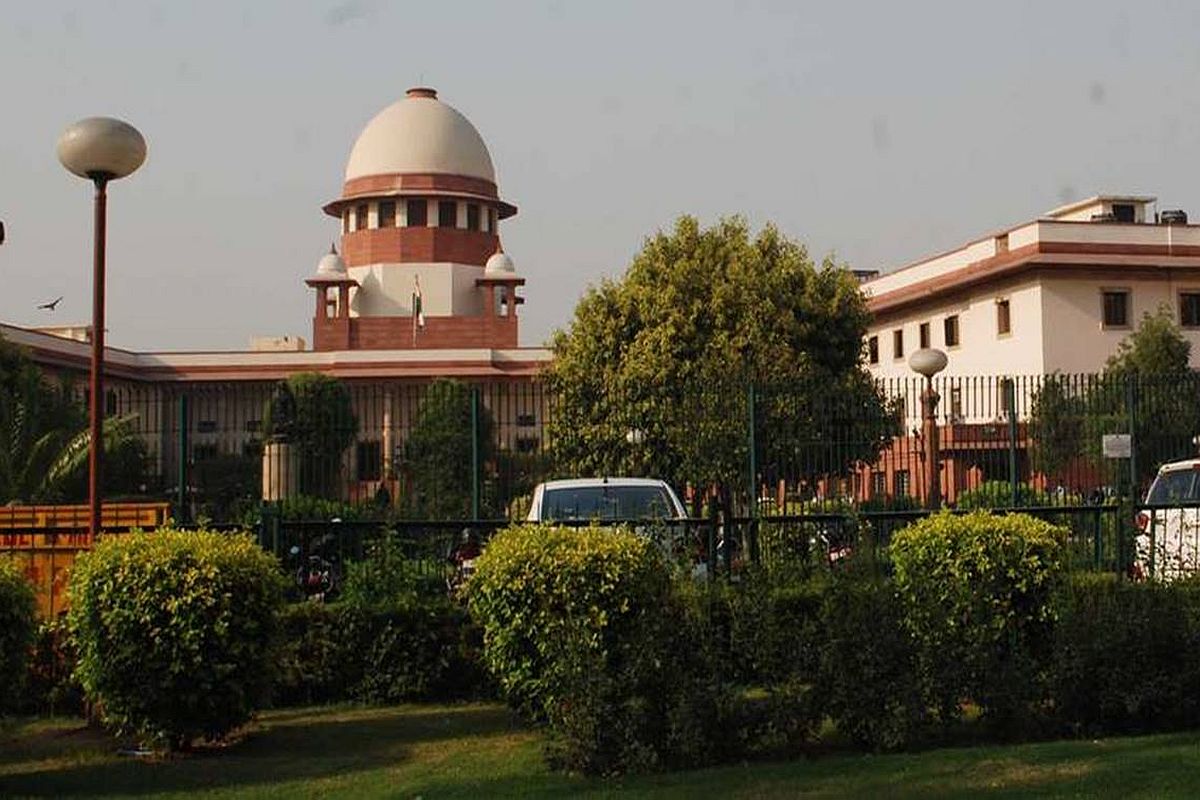India’s Got Latent: SC issues notice on YouTuber Ashish Chanchlani’s plea against FIRs
SC issues notice on YouTuber Ashish Chanchlani’s plea to quash or transfer FIR in India’s Got Latent case; tagged with Ranveer Allahabadia’s petition.
CJI Ranjan Gogoi invited parties to suggest a name for mediator or panel for mediators and said that the court intends to pass the order at the earliest.

Supreme Court (Photo: File)
The Supreme Court on Wednesday reserved its order on the issue of referring the politically sensitive Ram Janmabhoomi-Babri Masjid land dispute case to court-appointed and monitored mediation for “permanent solution”.
CJI Ranjan Gogoi invited parties to suggest a name for mediator or panel for mediators and said that the court intends to pass the order at the earliest.
Advertisement
A five-judge constitution bench of the Supreme Court today commenced hearing on the matter to decide whether the case may be sent for court-monitored mediation to save time.
Advertisement
“There need not be one mediator but a panel of mediators,” Justice SA Bobde said.
Asserting that the matter was not only about property, but about sentiments and faith, the court said it is conscious of the gravity of dispute and the outcome of mediation on body politics.
Saying that the court has no control over what happened in the past, it asserted that it was only concerned about resolving the present dispute.
“We have no control over what happened in past, who invaded, who was the king, temple or mosque. We are not concerned about what Babur did and what happened after, we can go into what exists in present,” the court observed.
Advocate Rajeev Dhavan, appearing for a group of Muslim petitioners in the case said the “Muslim petitioners were agreeable to mediation and any compromise or settlement will bind parties” and also asked the bench to frame terms for mediation.
While some of the Muslim parties had agreed to the court’s suggestion on mediation, some Hindu bodies including the Ram Lalla Virajman opposed it, saying several such attempts have failed in the past.
The court further said that when the mediation was on, it should not be reported on. “It may not be a gag, but no motive should be attributed to anyone when the mediation process is on,” the court said.
The other judges of the bench are Justices DY Chandrachud, Ashok Bhushan and SA Nazeer.
The top court on February 26 had said it would pass an order on March 6 on whether to refer the matter to a court-appointed mediator.
A five-judge Constitution Bench headed by Chief Justice Ranjan Gogoi had asked the contesting parties to explore the possibility of amicably settling the decades-old dispute through mediation, saying it may help in “healing relations”.
Even if there is “one per cent chance” of settling the dispute amicably, the parties should go for mediation, the bench had observed.
The suggestion for mediation was mooted by Justice Bobde, during the hearing when both the Hindu and the Muslim sides were sparring over the veracity of documents related to the case which were translated by the Uttar Pradesh government and filed with the apex court registry.
Fourteen appeals have been filed in the apex court against the 2010 Allahabad High Court judgment, delivered in four civil suits, that the 2.77-acre land in Ayodhya be partitioned equally among the three parties — the Sunni Waqf Board, the Nirmohi Akhara and Ram Lalla.
Advertisement